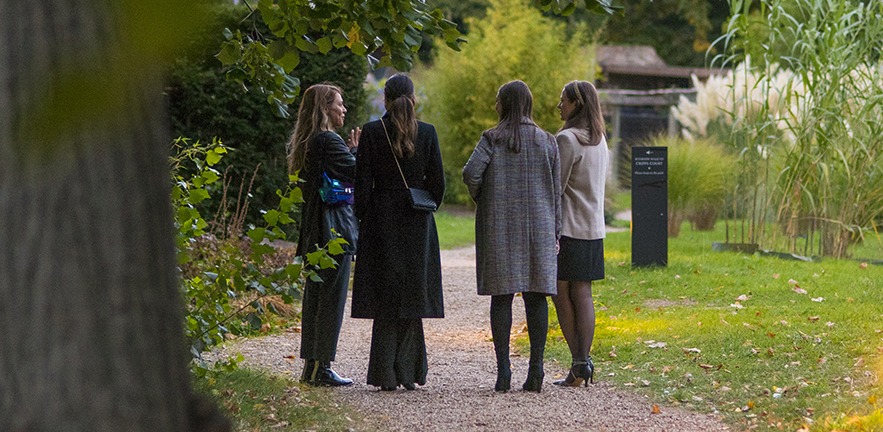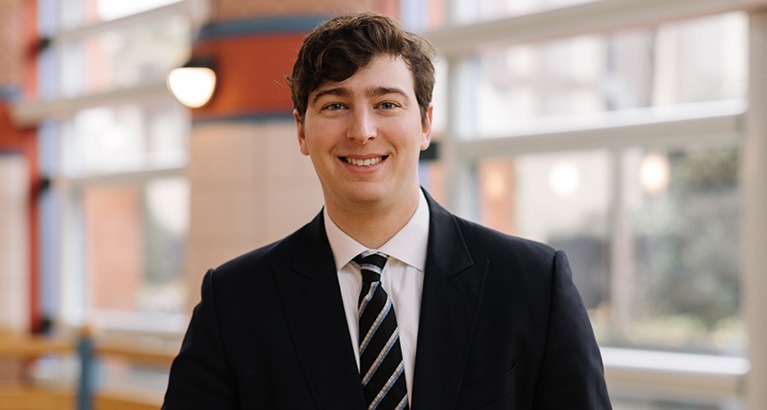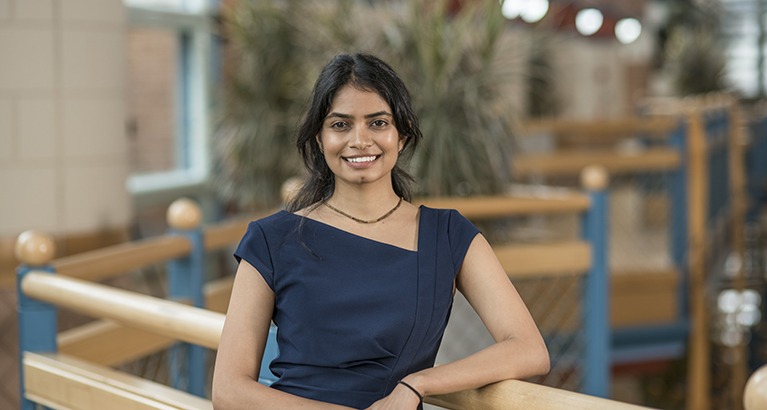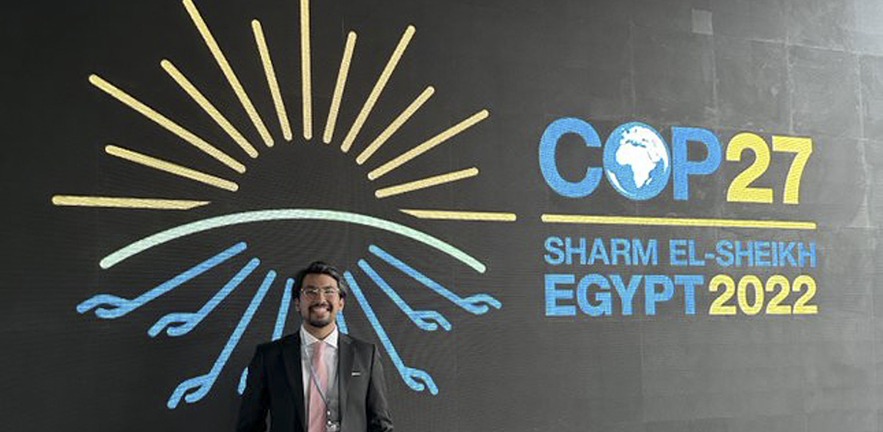“Leadership in organisations is all about leadership for global responsibility and leading change in society and business for the wider good,” according to Shamiso Barnett, Head of MBA Curriculum on the Cambridge MBA. “There is arguably no greater global responsibility right now than driving sustainability and tackling climate change.”
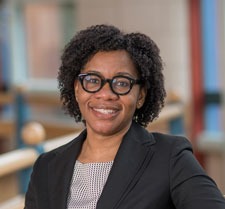
“Sustainability research and best practice is embedded in every course as part of the Cambridge MBA programme,” Shamiso Barnett, Head of MBA Curriculum says. “From Corporate Governance to Organisational Leadership, sustainability and ESG more widely is brought into the classroom in live examples and case studies, in classroom discussions and across MBA team and study group projects.”
The MBA at Cambridge is designed to build broad business understanding, as well as to provide courses and modules that can be tailored to a career along various lines of specialism – including sustainability leadership. Broad global challenges such as sustainability or ESG require people with broad skills and experiences to work together across business, government and the social sectors – the very diverse nature of each Cambridge MBA class is the perfect environment to tackle such topics.
Yann’s story: why he chose the Cambridge MBA for a career in sustainability
Alumnus Yann Grandemange, Senior Associate at Finance Earth, was working in investment and research before his MBA. His role was developing into ESG investment, at the same time as he was developing an interest in nature and the wider issues of sustainability. He looked for an MBA to transition into a role fully focused on sustainability.
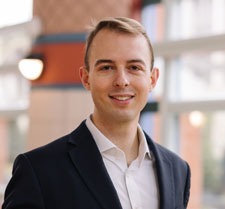
“I wanted to do an MBA to get a clearer perspective on the operations of a company and to find a role, perhaps in consulting, that would be focused on improving the system.” Project work is an important component of the MBA programme and is a primary attraction for a large proportion of the class when choosing Cambridge.
In 2021, Yann worked with Nestlé during his Cambridge MBA Global Consulting Project, with a focus on nature-based solutions, sustainable supply chains and the circular economy. “We were mapping out concrete solutions to the problem of food loss and operational waste. We talked to a lot of people on the ground, as well as within Nestlé. It helped me do what I wanted to do, which was get to the nitty gritty of an issue in corporate operations and supply chains. It was very valuable for my career experience.”
Yann later worked as a consultant at the wildlife conservation organisation Fauna and Flora International, headquartered in Cambridge, before moving on to his role at Finance Earth, based in London.
“I chose a business school centred within a university ecosystem. Within the wider University of Cambridge ecosystem, there are global headquarters like Fauna and Flora International, Birdlife International and the Cambridge Institute for Sustainable Leadership; the Circular Economy Centre, for example, is a global research centre that sits within Cambridge Judge Business School.”
“The broader University is producing a huge body of knowledge in topics that are very important to me. Cambridge is very much a hotspot for conservation right now and in particular, conservation in nature.”
Maria’s story: how she secured her job as a director on the Global Sustainable Finance team
Maria Ichizawa, also graduated in 2021 and now works for Morgan Stanley on the global sustainable finance team, partnering with the different business units to help them push forward sustainable solutions and products.
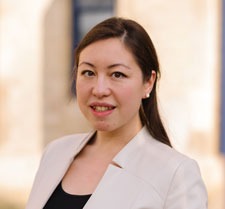
While Maria already had a background in the ESG sector, she was looking to transition from the consulting side into a role more in the financial sector. “I decided that I wanted to do an MBA because I didn’t have that finance background. I really wanted a better understanding of capital markets, of the investing landscape to be able to go into ESG investing, sustainable investing and sustainable finance. The MBA was crucial in giving me those hard skills, the overview, the background, and exposure to people who had worked in the sector,” Maria explains.
The Careers Team at Cambridge Judge then introduced Maria to a London-based asset management company, where she was offered a summer work placement where she then could refine her finance skills and experience further during her MBA year. Maria explains, “I didn’t have that finance background before the MBA. So that was a great first step and it really was critical in getting my current position.”
Maria also took part in a MBA graduate competition, Kellogg-Morgan Stanley Sustainable Investing Challenge, a unique experience that enabled her to meet and get to know her current ESG team at Morgan Stanley.
Now as a director on the Global Sustainable Finance team, based in New York, Maria achieved her goal to transition sector and also country, from Japan to the USA, through a year in the UK.
What recruiters in the ESG space are looking for
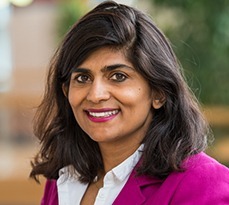
Head of CJBS Careers, Sadia Cuthbert, talks about what recruiters are looking for in MBA graduates:
“MBAs are very engaged with the ESG agenda and securing roles, be this sustainable investing, climate tech, building corporate social and governance resilience, climate risk, or mobility toward net zero. Millennials and Gen Z are particularly motivated by roles where they can have an impact on the environment. And the jobs are there too, as companies integrate the ESG framework into their hiring strategies. Companies are looking for graduates with some sort of ESG experience, but they are also looking to hire candidates with relevant transferable skills. Sometimes it’s the hard skills which come first, and which can then be overlaid with the ESG framework,” Sadia explains.
ESG in the MBA curriculum
Returning to the Cambridge MBA curriculum, Shamiso explains, “The 10 thematic Concentrations offered in the third MBA term include Energy & Environment, Healthcare and Social Innovation, which is all about sustainability, social impact and change for the wider good”.
“The Energy and Environment Concentration allows students with an interest and passion in this sector to explore it further, without the requirement of any prior knowledge. Each of the 10 Concentrations concludes with a final team project and a presentation in a simulated boardroom situation”, Shamiso continues.
“The pervasive nature of energy and environment, across the economy and within firms, means that it serves as a wonderful case study across all aspects of business education: marketing, strategy, economics, finance, operations, ethics and leadership,” Shamiso concludes.
ESG is something business schools are taking seriously, as professionals from across sectors seek to build knowledge and experience in the area, network broadly and find new ways to approach the massive challenges we face. The Cambridge MBA framework, with its emphasis on experiential learning, on retaining the general, broad curriculum whilst allowing students to specialise later in the year, and embedded within the vibrant research environment in Cambridge, has something powerful to offer those wanting to forge an ESG or sustainability related career.


